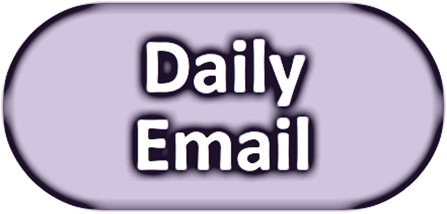Elul Unbound: Week 4
Day 22 (Sunday, September 2nd): Mini-Podcast #4 - Sorry Seems to be the Hardest Word
Today, and each Sunday of Elul, we kick off our weekly Elul theme with a mini-podcast. Click the play button below to hear this week's!
Wake-Up Call:
Each day of Elul Unbound includes a wake-up call, to remind us that part of this final month of the year is becoming awake to what is coming in the new year. For our Day 22 wake-up call, press the play button on the right.
Day 23 (Monday, September 3rd): Tao Te Ching, Chapter 67
Each Monday of Elul, we are releasing a poem related to our weekly theme. This week, we have chosen the 67th chapter of the Tao Te Ching, the central text of Taoism, as translated by Stephen Mitchell.
Tao Te Ching: Chapter 67
By Lao Tzu (translation by Stephen Mitchell)
Some say that my teaching is nonsense.
Others call it lofty but impractical.
But to those who have looked inside themselves,
this nonsense makes perfect sense.
And to those who put it into practice,
this loftiness has roots that go deep.
I have just three things to teach:
simplicity, patience, compassion.
These three are your greatest treasures.
Simple in actions and in thoughts,
you return to the source of being.
Patient with both friends and enemies,
you accord with the way things are.
Compassionate toward yourself,
you reconcile all beings in the world.
Questions for Reflection:
1) Simplicity. Patience. Compassion. Are those three treasures truly all that we need? Why or why not?
2) What's an example of something nonsensical, in the world, that "makes perfect sense" to you?
Wake-Up Call:
Each day of Elul Unbound includes a wake-up call, to remind us that part of this final month of the year is becoming awake to what is coming in the new year. For our Day 23 wake-up call, press the play button below.
Day 24 (Tuesday, September 4th): EL-O-L #4
Each Tuesday of this month, we are sending out a little dose of Elul humor, through a joke that connects with our weekly Elul Unbound theme. Today's relates to the ritual of Tashlich, which many Jewish communities take on during Rosh Hashanah. It consists of going to a body of water, saying prayers of forgiveness, and casting away sins through the symbolic practice of casting away bread crumbs.
Here are a few bread products we recommend for Tashlich, in order to cast away specific habits:
For being self-righteous: Angel-food Cake
For littering: Dumplings
For promiscuity: Hot Buns
For being tasteless: Rice Cakes
For causing injury to others: Tortes
For goofing off: Nut Bread
For being ill-tempered: Sourdough
For stealing an automobile: Caraway Bread
For committing arson: Toast
For substance abuse: Poppy Seed Bread
For indecision: Waffles
For arrogance, pride: Puff Pastry
And Last but not least - For telling bad jokes: Cornbread
Question for Reflection:
1) What is one pattern, or habit, that you are looking to cast away this year?
Wake-Up Call:
Each day of Elul Unbound includes a wake-up call, to remind us that part of this final month of the year is becoming awake to what is coming in the new year. For our Day 24 wake-up call, press the play button below.
Day 25: (Wednesday, September 5th): Asking Forgiveness - A Difficult Conversation
Each Wednesday of Elul, we are encouraging folks to take in a reading on the weekly theme we have chosen for Elul Unbound. This week's was written by Laura Geller, Rabbi Emerita of Temple Emanuel in Beverly Hills, and is entitled "Asking Forgiveness: A Difficult Conversation."
Asking Forgiveness: A Difficult Conversation
By Laura Geller
Image Credit: PBS
The conversation is supposed to begin like this: “Will you forgive me for anything I might have said or done this year that has hurt you?” You are sitting with a friend over coffee, during the days between Rosh Hashanah and Yom Kippur, and you ask this question. Not easy.
What if your friend responds, “What did you do or say?” Or what if your friend says, “You know, it did really hurt me when I found out that you shared that story that I had told you in confidence or ... didn’t include me when you had that party or ... embarrassed me in front of so and so,” etc. Not horrible sins, maybe, but the kind of interpersonal hurts that erode intimacy. Or maybe there are more serious breaches. Could you call the relative to whom you have stopped speaking over some long-ago insult and ask the same question? What kind of conversation would ensue? Or could you sit down with your partner — or your kids or your parents — and ask the same question?
Our tradition tells us: “For transgressions between a person and God, Yom Kippur serves as atonement. For transgressions between one person and another, Yom Kippur does not serve as atonement, until the one offended has been appeased.” There are specific instructions. First, you have to acknowledge the hurt you did. Then, if the issue involves money, you have to pay back the money involved. Next, you have to resolve never to do it again. And finally, you have to discuss the issue with the one you have hurt and ask for forgiveness. This is teshuvah (repentance); this is the work of this season.
Asking for forgiveness is not easy. But it pales in comparison to how hard it is to forgive. Here Jewish tradition is also very clear: “If the person against whom one had sinned did not want to forgive, then one has to ask him/her for forgiveness in front of three of his/her friends. If s/he still didn’t want to forgive, then one asks him/her in front of six, and then in front of nine of his/her friends, and if s/he still didn’t want to forgive him/her, one leaves him/her and goes away. Anybody who does not want to forgive is a sinner.”
That’s pretty harsh. Aren’t here some things that are unforgivable? Maybe it depends on what you mean by forgiveness.
Jewish tradition tells us there are three kinds of forgiveness, articulated by David Blumenthal in an article in Cross Currents magazine:
"The most basic kind of forgiveness is 'forgoing the other's indebtedness' (mechila) after the offender has done teshuvah. This is not a reconciliation of heart. The crime remains; only the debt is forgiven. The second kind of forgiveness is 'forgiveness' (selicha). It is an act of the heart. It is reaching a deeper understanding of the sinner. It is achieving empathy for the troubledness of the other. Selicha, too, is not a reconciliation or an embracing of the offender; it is simply reaching the conclusion that the offender, too, is human, frail and deserving of sympathy. It is closer to an act of mercy than to an act of grace. The third kind of forgiveness is 'atonement' (kappara). This is a total wiping away of all sinfulness. It is an existential clenasing. Kapara is the ultimate form of forgiveness, but it is only granted by God."
So forgiveness ought to be given only if the offender has done the work necessary to change. But change is possible; people can learn from their mistakes. Notice that forgiveness doesn’t mean everything goes back to the way it once was. It doesn’t mean you have to invite the one who hurt you over for dinner. But it does mean that you can give up your victim status and go on with the rest of your life.
Every night, before we go to sleep, there is a prayer that is part of the bedtime Sh’ma:
I hereby forgive all who have hurt me, all who have done me wrong, deliberately or by accident, whether by word or by deed. May no one be punished on my account. As I forgive and pardon fully those who have done me wrong, may those whom I have harmed forgive and pardon me, whether I acted deliberately or by accident, whether by word or deed. Wipe away my sins, O Lord, with your great mercy. May I not repeat the wrongs I have committed. May the words of my mouth and the meditations of my heart be acceptable to you, my Rock and my Redeemer.
Try saying this prayer before you go to sleep. Let me know how it feels. Some congregations end their Kol Nidre service with these words. Should we?
Question for Reflection:
1) What aspects of forgiveness are hardest for you? Forgiving yourself, forgiving others, or asking others to forgive you?
Wake-Up Call:
Each day of Elul Unbound includes a wake-up call, to remind us that part of this final month of the year is becoming awake to what is coming in the new year. For our Day 24 wake-up call, press the play button below.
Day 26 (Thursday, September 6th): Kids Say the Elul-est Things
On Thursdays, during the month of Elul, we are sending out videos that dovetail with the week's Elul Unbound theme. Today's video clip was created by the JCC of Greater Orlando.
Questions for Reflection
1) The video closes with one of our young sages saying that "If someone hurts your feelings, you've just gotta let it go!" It's hard to argue with the wise words of these little ones, but is that advice challenging for you this year? Why or why not?
Wake-Up Call:
Each day of Elul Unbound includes a wake-up call, to remind us that part of this final month of the year is becoming awake to what is coming in the new year. For our Day 26 wake-up call, press the play button on the right.










